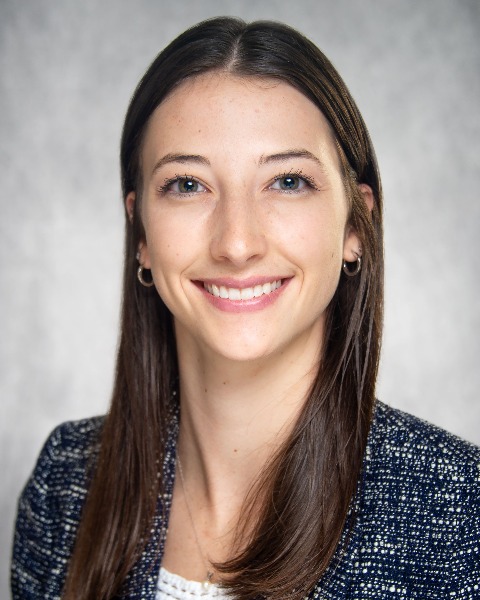Tuesday Poster Session
Category: Interventional Endoscopy
P5654 - Long-Term Outcomes of Fully Covered Self-Expanding Metal Stent (FCSEMS) Placement for Refractory Benign Esophageal Strictures
Tuesday, October 28, 2025
10:30 AM - 4:00 PM PDT
Location: Exhibit Hall

Samantha Parks, MD (she/her/hers)
Medical University of South Carolina
Charleston, SC
Presenting Author(s)
Award: ACG Presidential Poster Award
Samantha Parks, MD, Romik Srivastava, MD, MSCR, B. Joseph Elmunzer, MD
Medical University of South Carolina, Charleston, SC
Introduction: Refractory benign esophageal strictures (RBES) that fail conventional endoscopic therapies pose a complex clinical challenge. By aiming to remodel the stricture through prolonged radial stretch, placement of a fully covered self-expanding metal stent (FCSEMS) is commonly employed as salvage therapy, but the long-term efficacy and impact of technical factors remain unclear. We hypothesized that FCSEMS placement provides sustained dysphagia relief in the majority of patients with RBES and that technical factors, including stent type and dwell time, may influence clinical outcomes.
Methods: This retrospective cohort study included patients who underwent FCSEMS placement for RBES at a tertiary care center from January 2015 to April 2024. Of 1,033 potentially eligible patients identified via charge capture, 82 had a benign stricture that failed prior conventional approaches and was treated with FCSEMS placement. Data were obtained primarily from electronic health record review, with selective follow-up phone calls to clarify missing outcomes. The primary outcome was sustained dysphagia relief at ≥ 3 months post-stent removal. Stricture and stent characteristics, stent dwell time, migration events, re-intervention, and adverse events were also assessed.
Results: Among the 82 eligible patients, the most common stricture etiologies were peptic (30.5%), anastomotic (23.2%), post-endoscopic therapy (19.5%), and radiation-induced (13.4%). Sustained dysphagia relief was achieved in 25.3% of cases (n=21), 62.7% (n=52) experienced unsuccessful outcomes, 8.4% (n=7) were actively undergoing stent therapy, and the remaining 2.4% (n=2) were lost to follow-up. The average index stent dwell time for those with successful stent therapy was 72.2 days and 71.4 days for those who failed. Other technical factors did not appear to impact success. Of those with successful initial stent therapy, 20% (n=5) ultimately had re-stenosis beyond 3 months requiring further intervention.
Discussion: Though FCSEMS placement offers sustained symptom relief in a small subset of patients with RBES, overall success rates are suboptimal, highlighting the need for additional treatment options. Stricture etiology and technical approaches were not associated with outcome. Limitations of this study include a retrospective design, modest sample size (though this is the largest retrospective study to date), inconsistent clinical documentation, lack of a control group, and inclusion of patients still undergoing stent therapy.
Disclosures:
Samantha Parks indicated no relevant financial relationships.
Romik Srivastava indicated no relevant financial relationships.
B. Joseph Elmunzer indicated no relevant financial relationships.
Samantha Parks, MD, Romik Srivastava, MD, MSCR, B. Joseph Elmunzer, MD. P5654 - Long-Term Outcomes of Fully Covered Self-Expanding Metal Stent (FCSEMS) Placement for Refractory Benign Esophageal Strictures, ACG 2025 Annual Scientific Meeting Abstracts. Phoenix, AZ: American College of Gastroenterology.
Samantha Parks, MD, Romik Srivastava, MD, MSCR, B. Joseph Elmunzer, MD
Medical University of South Carolina, Charleston, SC
Introduction: Refractory benign esophageal strictures (RBES) that fail conventional endoscopic therapies pose a complex clinical challenge. By aiming to remodel the stricture through prolonged radial stretch, placement of a fully covered self-expanding metal stent (FCSEMS) is commonly employed as salvage therapy, but the long-term efficacy and impact of technical factors remain unclear. We hypothesized that FCSEMS placement provides sustained dysphagia relief in the majority of patients with RBES and that technical factors, including stent type and dwell time, may influence clinical outcomes.
Methods: This retrospective cohort study included patients who underwent FCSEMS placement for RBES at a tertiary care center from January 2015 to April 2024. Of 1,033 potentially eligible patients identified via charge capture, 82 had a benign stricture that failed prior conventional approaches and was treated with FCSEMS placement. Data were obtained primarily from electronic health record review, with selective follow-up phone calls to clarify missing outcomes. The primary outcome was sustained dysphagia relief at ≥ 3 months post-stent removal. Stricture and stent characteristics, stent dwell time, migration events, re-intervention, and adverse events were also assessed.
Results: Among the 82 eligible patients, the most common stricture etiologies were peptic (30.5%), anastomotic (23.2%), post-endoscopic therapy (19.5%), and radiation-induced (13.4%). Sustained dysphagia relief was achieved in 25.3% of cases (n=21), 62.7% (n=52) experienced unsuccessful outcomes, 8.4% (n=7) were actively undergoing stent therapy, and the remaining 2.4% (n=2) were lost to follow-up. The average index stent dwell time for those with successful stent therapy was 72.2 days and 71.4 days for those who failed. Other technical factors did not appear to impact success. Of those with successful initial stent therapy, 20% (n=5) ultimately had re-stenosis beyond 3 months requiring further intervention.
Discussion: Though FCSEMS placement offers sustained symptom relief in a small subset of patients with RBES, overall success rates are suboptimal, highlighting the need for additional treatment options. Stricture etiology and technical approaches were not associated with outcome. Limitations of this study include a retrospective design, modest sample size (though this is the largest retrospective study to date), inconsistent clinical documentation, lack of a control group, and inclusion of patients still undergoing stent therapy.
Disclosures:
Samantha Parks indicated no relevant financial relationships.
Romik Srivastava indicated no relevant financial relationships.
B. Joseph Elmunzer indicated no relevant financial relationships.
Samantha Parks, MD, Romik Srivastava, MD, MSCR, B. Joseph Elmunzer, MD. P5654 - Long-Term Outcomes of Fully Covered Self-Expanding Metal Stent (FCSEMS) Placement for Refractory Benign Esophageal Strictures, ACG 2025 Annual Scientific Meeting Abstracts. Phoenix, AZ: American College of Gastroenterology.

